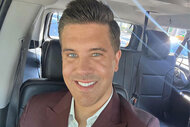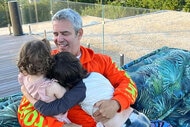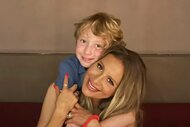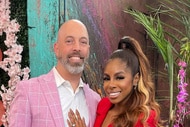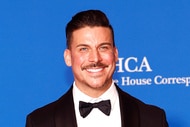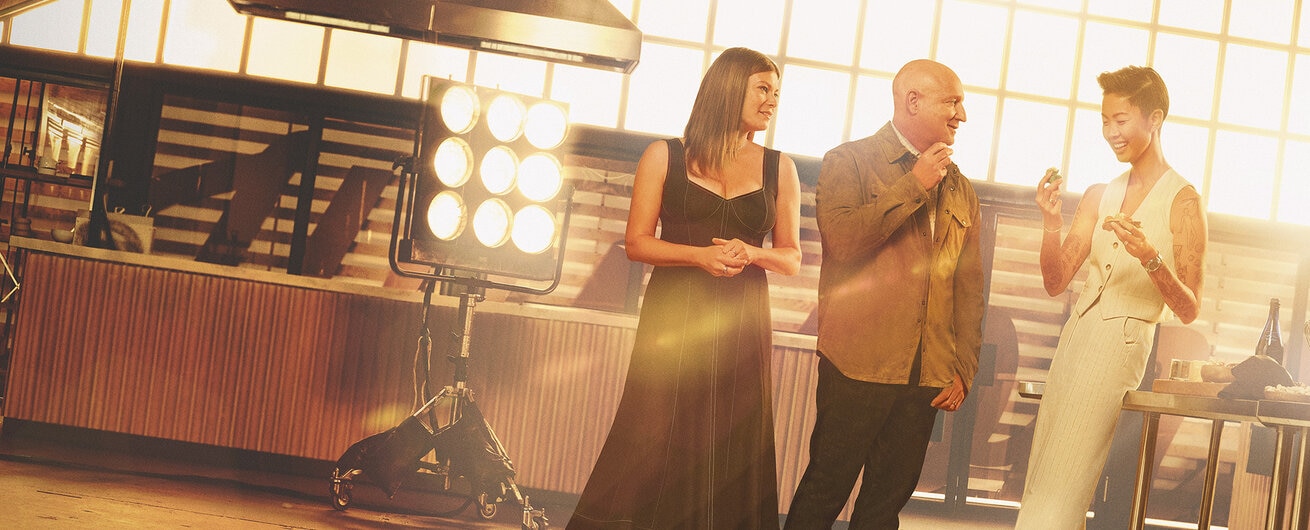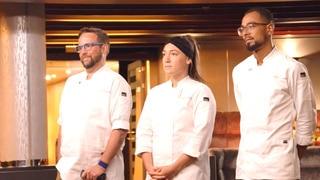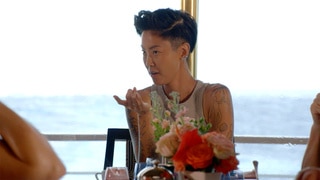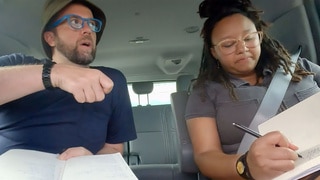
Create a free profile to get unlimited access to exclusive videos, sweepstakes, and more!
How Top Chef Helped Brother Luck Work Through Depression and Suicidal Thoughts
"I was alone, scared, and cornered by my personal demons," the Top Chef alum said of the time immediately after the competition.

The second time Brother Luck was eliminated from Bravo's Top Chef in Season 16 was the end of his journey in the culinary competition. However, it was the beginning of some important life changes for the Colorado-based chef.
Brother opened up about his recent struggles with depression and suicidal thoughts in an op-ed for the James Beard Foundation, which he started experiencing after his second Top Chef elimination in Kentucky last season. "I’m overwhelmed by feelings of disappointment in myself and mental exhaustion—again," Brother wrote. "A second-chance loser."
The chef/owner of Lucky Dumpling and Four by Brother Luck in Colorado Springs said he felt "completely broken" as he walked away from the judges' table.
"I keep it together as I slowly walk off the set, but I’m telling myself that I had never been good enough to be there or have a chance of winning. I don’t come from a high-profile, Michelin-starred restaurant, or have the endorsement of working for a celebrity chef," he said. "I am simply an ordinary chef with large-volume production experience. I may have a ton of heart, but I am an imposter."
Brother, who first competed on Top Chef in Season 15, recalled feeling "rejected" as he walked into the trailer to film his exit interview, especially after earning a spot back into the competition after winning Last Chance Kitchen, only to be eliminated the very same episode he returned. "I start hyperventilating; my anxiety skyrockets. I can’t keep putting myself through this gauntlet for the benefit of entertaining strangers," he said. "For the first time in a long time, I am truly scared about where that path would lead me."
Brother had been working on his mental health issues prior to the competition. His therapist diagnosed him with post-traumatic stress disorder (PTSD) about two years ago, which stemmed from experiences like the passing of his father and violence in his adolescence.
"Although I wasn’t aware of it at the time, I developed a victim’s mentality at a very young age, becoming a survivalist in stressful situations. My greatest strength —my endless perseverance — was actually fueled by pain and anger. Every time I tapped into those feelings to 'get it done,' I suffered from serious mental exhaustion. I had built some strong walls around my heart, and my brain could no longer sustain the pressure of guarding my emotions," he explained. "Losing Top Chef for the second time finally crumbled all of my defenses, uncovering my biggest insecurity: feeling undeserving of happiness or love."
Eliminated Top Chef contestants are sequestered for about six to eight weeks as the season continues filming, and Brother said he hit a particularly low point during that time. "I knew that I was dealing with a serious episode of depression, and I wanted everyone to feel my pain. I’m sure that I was miserable to be around, but inside I couldn’t shake the need to be distant. Even calling my wife didn’t relieve the anger or sadness," Brother remembered. "Living in that hotel room and feeling like nobody cared about me sparked memories of childhood neglect. I struggled with thoughts of suicide because it felt like the only way someone would finally pay attention. I was alone, scared, and cornered by my personal demons."
Brother said that he talked to the network's therapist and shared that it would be best for him to leave sequester and return home. And then the news that Anthony Bourdain had died by suicide broke. "I watched the details unfold on television alone in my room and began to cry. I don’t know if that morning was divine intervention, but I’m grateful that it forced me to confront my downward spiral," he said. "I sat in that lonely hotel room all day drinking whiskey and refusing to be cooperative or approachable. Eventually, production agreed that I would be allowed to go home."
However, returning home didn't solve all of Brother's problems. "I pushed others away and distracted myself by staying busy," he said, adding that he immediately got back to work, traveling around Colorado and to New York City for events.
Brother said that his wife actually "suffered the most during this time" because she watched him "destroy myself and pray that I wouldn’t be the cause of my own demise."
Eventually, she convinced him to seek help from his therapist, who made him realize that solitude wasn't the answer, but rather being vulnerable and embracing the love and support from those who care about him would help get him back on track. "I left my therapist’s office that rainy afternoon telling myself that I wanted and deserved to be happy," Brother said. "Staring at my reflection in the rearview mirror of my truck, I made a pact with myself: 'Brother Luck, you don’t want to die, because people really love you for just being you. Embrace them, trust them, and be proud of who you’ve become.'"
Brother said that he has come to realize that sharing his story helps other people struggling with the same challenges, such as a young chef who thanked him for opening up about being vulnerable while participating in the James Beard Foundation's Chefs Boot Camp for Policy and Change a few months later.
He is also hoping to raise awareness and promote a healthy mental and physical lifestyle within the culinary industry. Brother recently introduced #soberweek in his restaurants to challenge his staff to forgo alcohol and late nights out after work for seven days and instead try out early morning activities like yoga in the restaurant, volunteering at a rescue mission, or hiking.
Going through this difficult time in his life has ultimately been a positive experience for Brother. "When I step back and look at the past year, I realize that I’m no longer the same person who had that mental break on the Top Chef set in Kentucky. Competing on Top Chef was always a dream of mine, and I’m so grateful that was I able to accomplish that goal. But now I’m done chasing validation and begging others to accept me," he said. "My idea of success is maintaining my priorities of faith, family, and work, in exactly that order."
If you or someone you know needs help finding crisis resources, contact the National Suicide Prevention Lifeline at 1-800-273-8255 or www.suicidepreventionlifeline.org. The Lifeline provides 24/7, free, and confidential support for people in distress, prevention and crisis resources for you or your loved ones, and best practices for professionals.
